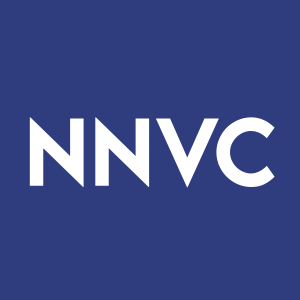NanoViricides Has Received Approval to Start Phase II Clinical Trial of NV-387 for the Treatment of MPox by the Regulatory Agency ACOREP of the Democratic Republic of Congo
Rhea-AI Summary
NanoViricides (NYSE American: NNVC) announced on November 10, 2025 that the Democratic Republic of Congo regulatory agency ACOREP has approved the start of a Phase II clinical trial of NV-387 for treatment of MPox (hMPXV), subject to filing certain final documents and translations.
The company previously received Ethics Committee (CNES) clearance in May 2025 and is preparing English and French certified clinical trial application materials. NV-387 has reported broad preclinical antiviral activity across multiple lethal animal models, and the program targets MPox as well as other respiratory and systemic viral infections.
Positive
- ACOREP approval to start Phase II dated November 10, 2025
- Ethics Committee (CNES) approval obtained in May 2025
- Preclinical efficacy in multiple lethal animal models cited
Negative
- Start of recruitment is conditional on filing finalized documents and certified French translations
- Press release warns no assurance trials will show safety or effectiveness in humans
News Market Reaction
On the day this news was published, NNVC declined 8.70%, reflecting a notable negative market reaction. Argus tracked a peak move of +2.6% during that session. Argus tracked a trough of -20.7% from its starting point during tracking. Our momentum scanner triggered 9 alerts that day, indicating moderate trading interest and price volatility. This price movement removed approximately $3M from the company's valuation, bringing the market cap to $35M at that time. Trading volume was above average at 1.5x the daily average, suggesting increased trading activity.
Data tracked by StockTitan Argus on the day of publication.
SHELTON, CONNECTICUT / ACCESS Newswire / November 10, 2025 / NanoViricides, Inc. (NYSE American:NNVC) (the "Company") today reported that it has received approval to Start Phase II Clinical Trial of NV-387 for the Treatment of MPox by the Regulatory Agency ACOREP of the Democratic Republic of Congo (DRC).
The proposed Phase II clinical trial to evaluate safety and effectiveness of NV-387 for the treatment of patients with MPox disease caused by hMPXV infection is now cleared to proceed subject to filing of certain documents.
"This is an important milestone in regulatory development of NV-387," said Anil R. Diwan, PhD, President and Executive Chairman of the Company.
There is no drug available for the treatment of hMPXV infection that causes the MPox disease. A clinical trial of tecovirimat (TPOXX®, SIGA) failed to demonstrate any effectiveness over placebo, as per a NIH press release on August 15, 2024. Another drug, brincidofovir (TEMBEXA ®, EBS) entered into a clinical trial called "MOSA" with fanfare in January, 2025, with early topline results expected by the end of the quarter. The status of this clinical trial is not publicly known as of now.
MPox Clade II has become endemic in the USA but it affects a limited population of Men-having-Sex-with-Men (MSM), because of transmission during sexual activity.
Most recently, three new cases of MPox Clade I have been found in California in unconnected persons, with no travel to Africa; yet the MPXV viral genomes were found to be in the same cluster, suggesting that community spread of the MPXV Clade I is likely already occurring, according to the CDC (https://www.aha.org/news/headline/2025-10-29-cdc-says-3-cases-severe-mpox-california-may-be-linked-august-case).
"NV-387, our broad-spectrum antiviral drug is poised to cause a revolution in treatment of viral diseases, just as antibiotics revolutionized the treatment of bacterial diseases," said Anil R. Diwan, Ph.D., adding "NV-387 is designed to mimic human cells to trap and destroy the virus. This single drug can target over 90
The Company previously announced in May, 2025 that it has received an approval from the Ethics Committee CNES of the national regulatory agency in DRC that NV-387 can be considered for a Phase II clinical trial for the treatment of MPox. This approval was based on a summary package of information regarding NV-387 regulatory development until then. This Ethics Committee approval cleared the path for us to engage with the regulatory agency ACOREP and prepare the documentation required for their evaluation and approval as instructed by them.
We have now completed submission of substantial required documentation in the draft forms as requested. We are now in the process of compiling all of this documentation together into the final form Clinical Trial Application, along with associated certifications and disclosures. These documents will be translated into French as required by the DRC. Both French and English sets of documents, certified to be accurately translated, will then be submitted to the ACOREP regulatory agency. The approval to start recruiting patients will then become effective.
MPox disease, caused by the human MPox virus (hMPXV) has been causing a regional pandemic encompassing several countries in the WHO African Region that includes the Democratic Republic of Congo (DRC), Uganda, and other countries. It led to the WHO declaring a Public Health Emergency of International Concern ("PHEIC") on August 14, 2024 that was closed in September, 2025. However, the Mpox epidemic has continued to spread in the DRC, Uganda, and neighboring countries and the number of new weekly cases is still increasing in the WHO African Region. Therefore, the Africa CDC has maintained the status of the MPox pandemic as Public Health Emergency of Continental Security ("PHECS").
NV-387 was found to be highly effective in increasing survival in lethal animal models of influenza virus, surpassing existing drugs Tamiflu®, Rapivab® and Xofluza® by a large margin.
NV-387 led to a complete cure of lethal RSV lung infection in an animal model study. There is no approved drug for RSV treatment.
NV-387 was found to be highly effective in increasing survival in lethal animal models of Coronavirus infection (a stand-in model for SARS-CoV-2 infection), surpassing existing drug remdesivir by a large margin.
NV-387 was also found to be highly effective against lethal lung infection by Measles virus in a humanized (hCD150+knock-in/IfnR-/-) mouse model.
NV-387 was found to possess strong antiviral activity against an orthopoxvirus in an animal model that is considered an important model to establish potential effectiveness against MPox and Smallpox viruses, as all of these viruses belong to the same family of orthopoxviruses.
In fact, NV-387 effectiveness matched the effectiveness of the small chemical drug tecovirimat in two different models of infection, one was direct skin infection, and the other was a direct lung infection, by the virus.
Escape of virus from tecovirimat can occur by a single point mutation in a viral protein called VP-37.
Vaccines, antibodies, and small chemical drugs such as tecovirimat for MPox/Smallpox, or oseltamivir (Tamiflu®), baloxavir (Xofluza®) for Influenza are readily escaped by viruses simply by introduction of small changes that viruses undergo when they are faced with these challenges in the field.
In contrast, escape of virus from NV-387 is highly unlikely because no matter how much the virus changes in the field, it continues to use sulfated proteoglycans such as HSPG as "attachment receptor" in order to cause cell infection. NV-387 mimics the sulfated proteoglycan signature feature that the viruses require.
NV-387 is a host-mimetic drug that "looks like a cell" to the virus, displaying numerous ligands that mimic the sulfated proteoglycan, enticing the virus to bind to and become engulfed by the NV-387 dynamic shape-shifting polymeric micelle.
Therefore development of NV-387, a broad-spectrum host-mimetic, direct-acting antiviral drug that the viruses cannot escape even as they change constantly, will be revolutionary once the drug undergoes regulatory development for approval for use in humans.
New viruses and existing viruses acquiring greater pathology and infectivity are bound to keep appearing in time. To combat such threats, we need to develop broad-spectrum drug arsenal that the viruses cannot escape. Vaccines and antibodies simply will not do, and their limitations have become clearly evident during the COVID-19 pandemic.
NanoViricides, Inc. (the "Company") (www.nanoviricides.com) is a clinical stage company that is creating special purpose nanomaterials for antiviral therapy. The Company's novel nanoviricide™ class of drug candidates and the nanoviricide™ technology are based on intellectual property, technology and proprietary know-how of TheraCour Pharma, Inc. The Company has a Memorandum of Understanding with TheraCour for the development of drugs based on these technologies for all antiviral infections. The MoU does not include cancer and similar diseases that may have viral origin but require different kinds of treatments.
The Company has obtained broad, exclusive, sub-licensable, field licenses to drugs developed in several licensed fields from TheraCour Pharma, Inc. The Company's business model is based on licensing technology from TheraCour Pharma Inc. for specific application verticals of specific viruses, as established at its foundation in 2005.
Our lead drug candidate is NV-387, a broad-spectrum antiviral drug that we plan to develop as a treatment of RSV, COVID, Long COVID, Influenza, and other respiratory viral infections, as well as MPOX/Smallpox infections. Our other advanced drug candidate is NV-HHV-1 for the treatment of Shingles. The Company cannot project an exact date for filing an IND for any of its drugs because of dependence on a number of external collaborators and consultants. The Company is currently focused on advancing NV-387 into Phase II human clinical trials.
NV-CoV-2 (API NV-387) is our nanoviricide drug candidate for COVID-19 that does not encapsulate remdesivir. NV-CoV-2-R is our other drug candidate for COVID-19 that is made up of NV-387 with remdesivir encapsulated within its polymeric micelles. The Company believes that since remdesivir is already US FDA approved, our drug candidate encapsulating remdesivir is likely to be an approvable drug, if safety is comparable. Remdesivir is developed by Gilead. The Company has developed both of its own drug candidates NV-CoV-2 and NV-CoV-2-R independently.
The Company is also developing drugs against a number of viral diseases including oral and genital Herpes, viral diseases of the eye including EKC and herpes keratitis, H1N1 swine flu, H5N1 bird flu, seasonal Influenza, HIV, Hepatitis C, Rabies, Dengue fever, and Ebola virus, among others. NanoViricides' platform technology and programs are based on the TheraCour® nanomedicine technology of TheraCour, which TheraCour licenses from AllExcel. NanoViricides holds a worldwide exclusive perpetual license to this technology for several drugs with specific targeting mechanisms in perpetuity for the treatment of the following human viral diseases: Human Immunodeficiency Virus (HIV/AIDS), Hepatitis B Virus (HBV), Hepatitis C Virus (HCV), Rabies, Herpes Simplex Virus (HSV-1 and HSV-2), Varicella-Zoster Virus (VZV), Influenza and Asian Bird Flu Virus, Dengue viruses, Japanese Encephalitis virus, West Nile Virus, Ebola/Marburg viruses, and certain Coronaviruses. The Company intends to obtain a license for RSV, Poxviruses, and/or Enteroviruses if the initial research is successful. As is customary, the Company must state the risk factor that the path to typical drug development of any pharmaceutical product is extremely lengthy and requires substantial capital. As with any drug development efforts by any company, there can be no assurance at this time that any of the Company's pharmaceutical candidates would show sufficient effectiveness and safety for human clinical development. Further, there can be no assurance at this time that successful results against coronavirus in our lab will lead to successful clinical trials or a successful pharmaceutical product.
This press release contains forward-looking statements that reflect the Company's current expectation regarding future events. Actual events could differ materially and substantially from those projected herein and depend on a number of factors. Certain statements in this release, and other written or oral statements made by NanoViricides, Inc. are "forward-looking statements" within the meaning of Section 27A of the Securities Act of 1933 and Section 21E of the Securities Exchange Act of 1934. You should not place undue reliance on forward-looking statements since they involve known and unknown risks, uncertainties and other factors which are, in some cases, beyond the Company's control and which could, and likely will, materially affect actual results, levels of activity, performance or achievements. The Company assumes no obligation to publicly update or revise these forward-looking statements for any reason, or to update the reasons actual results could differ materially from those anticipated in these forward-looking statements, even if new information becomes available in the future. Important factors that could cause actual results to differ materially from the company's expectations include, but are not limited to, those factors that are disclosed under the heading "Risk Factors" and elsewhere in documents filed by the company from time to time with the United States Securities and Exchange Commission and other regulatory authorities. Although it is not possible to predict or identify all such factors, they may include the following: demonstration and proof of principle in preclinical trials that a nanoviricide is safe and effective; successful development of our product candidates; our ability to seek and obtain regulatory approvals, including with respect to the indications we are seeking; the successful commercialization of our product candidates; and market acceptance of our products.
The phrases "safety", "effectiveness" and equivalent phrases as used in this press release refer to research findings including clinical trials as the customary research usage and do not indicate evaluation of safety or effectiveness by the US FDA.
Where stated with an ® , the name is a registered trademark, which belongs to the owner of the trademark name.
FDA refers to US Food and Drug Administration. IND application refers to "Investigational New Drug" application. cGMP refers to current Good Manufacturing Practices. CMC refers to "Chemistry, Manufacture, and Controls". CHMP refers to the Committee for Medicinal Products for Human Use, which is the European Medicines Agency's (EMA) committee responsible for human medicines. API stands for "Active Pharmaceutical Ingredient". WHO is the World Health Organization. R&D refers to Research and Development.
Contact:
NanoViricides, Inc.
info@nanoviricides.com
Public Relations Contact:
ir@nanoviricides.com
SOURCE: NanoViricides, Inc.
View the original press release on ACCESS Newswire







